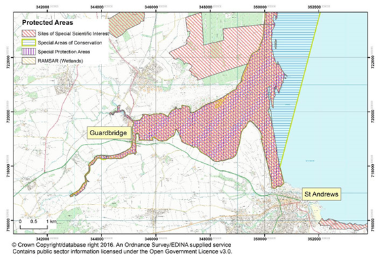Looking after Eden
Applications closed
Applications for this project are currently closed.
This vertically integrated project brings together researchers and students from various disciplines who share an interest in the Eden Estuary. The Eden Estuary is right on our doorstep; it is a local nature reserve with SSSI, SAC, SPA and Ramsar status (see map) and we benefit from this nature reserve in many ways, including recreational and educational.

Like many other nature reserves, the Eden Estuary and its inhabitants are exposed to a number of immediate and local as well as global and accumulative pressures caused by us humans. It is therefore essential to research these pressures on the Estuary, disseminate findings and lessons from our observations and develop solutions that will not only benefit the Estuary itself but can also be employed in other parts of the world. Staff involved in this project not only share a research interest in the Estuary, they have experience in innovative teaching & research methods and are interested in engaging VIP students (and the local community) in this collaborative project.
The project is guided by the following investigative steps: (1) Establish what we know about the Eden Estuary, (2) assess how can we support the Eden Estuary, (3) and evaluate our findings, share those with others, and look ahead.
Our key objectives are:
- give VIP students an inter-disciplinary and engaging learning experience that accompanies them across several semesters and gives them a sense of progression and impact
- contribute to conversations and collaborations on sustainability in and around the Eden Estuary
- consider the Eden Estuary as a delta in miniature that offers us an insight into ecological and human patterns past, present, and future, that can be observed elsewhere and at larger scales
- and finally, the VIP is intended to integrate and complement ongoing research and teaching across the university and beyond. Evidence generated by this VIP will benefit other research projects such as the Citizen Fins By participating in this VIP, students will have the opportunity to learn about a wide range of research methods and technologies and will be able to convey their findings in various formats such as policy-mapping, decision-trees, and citizen science research.